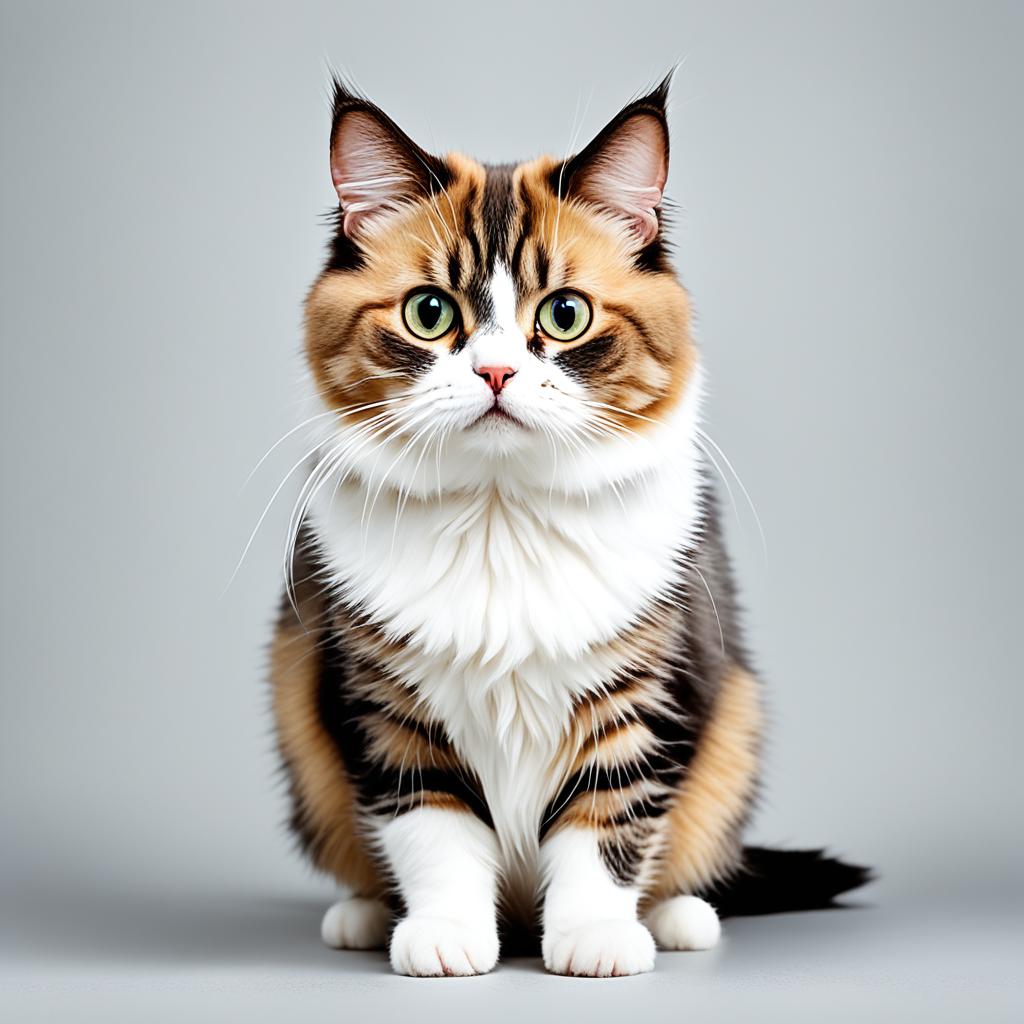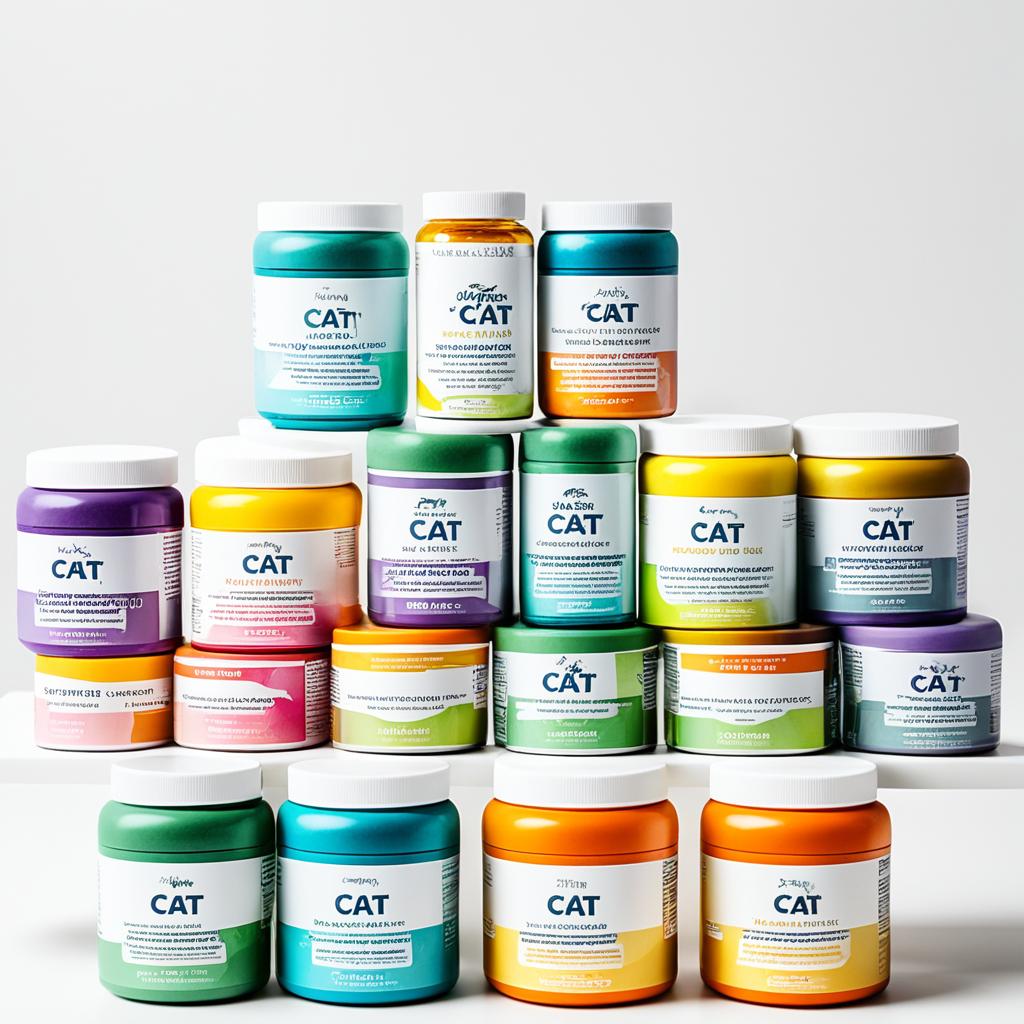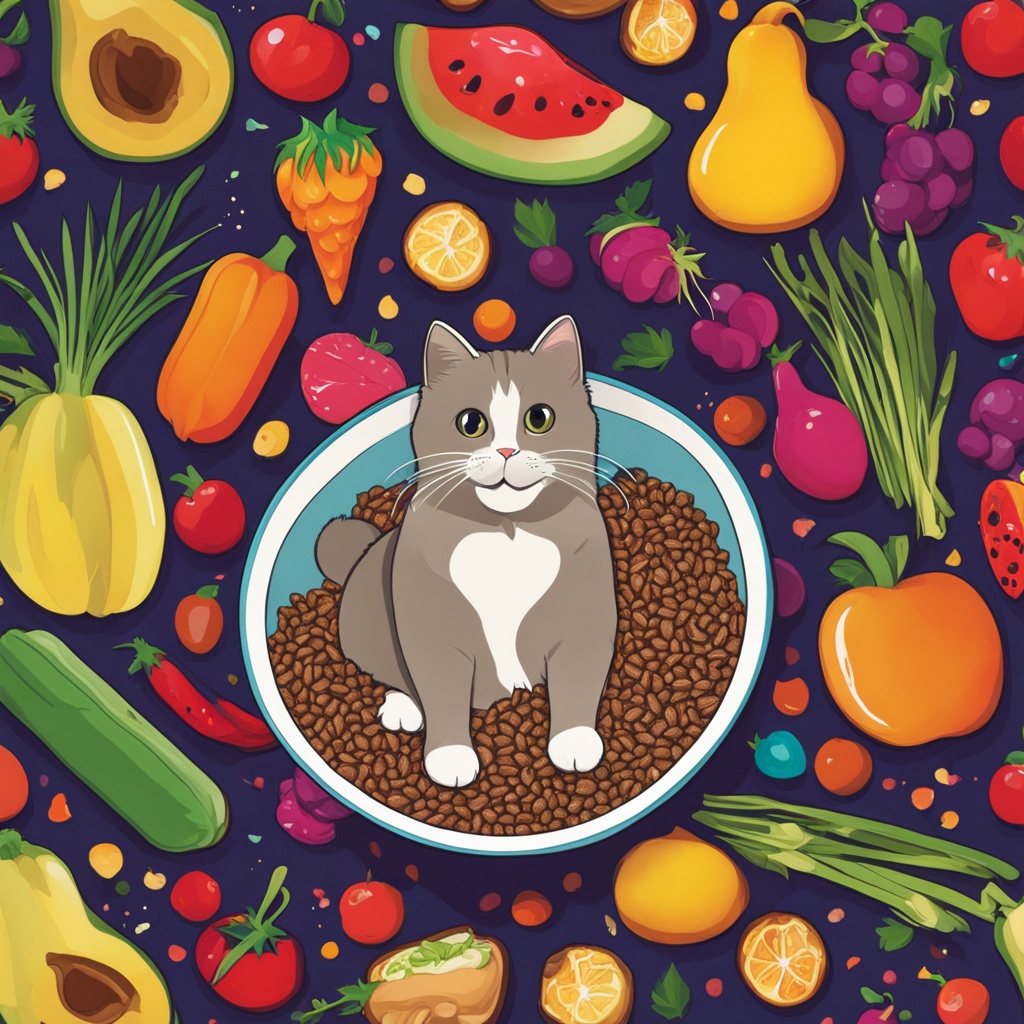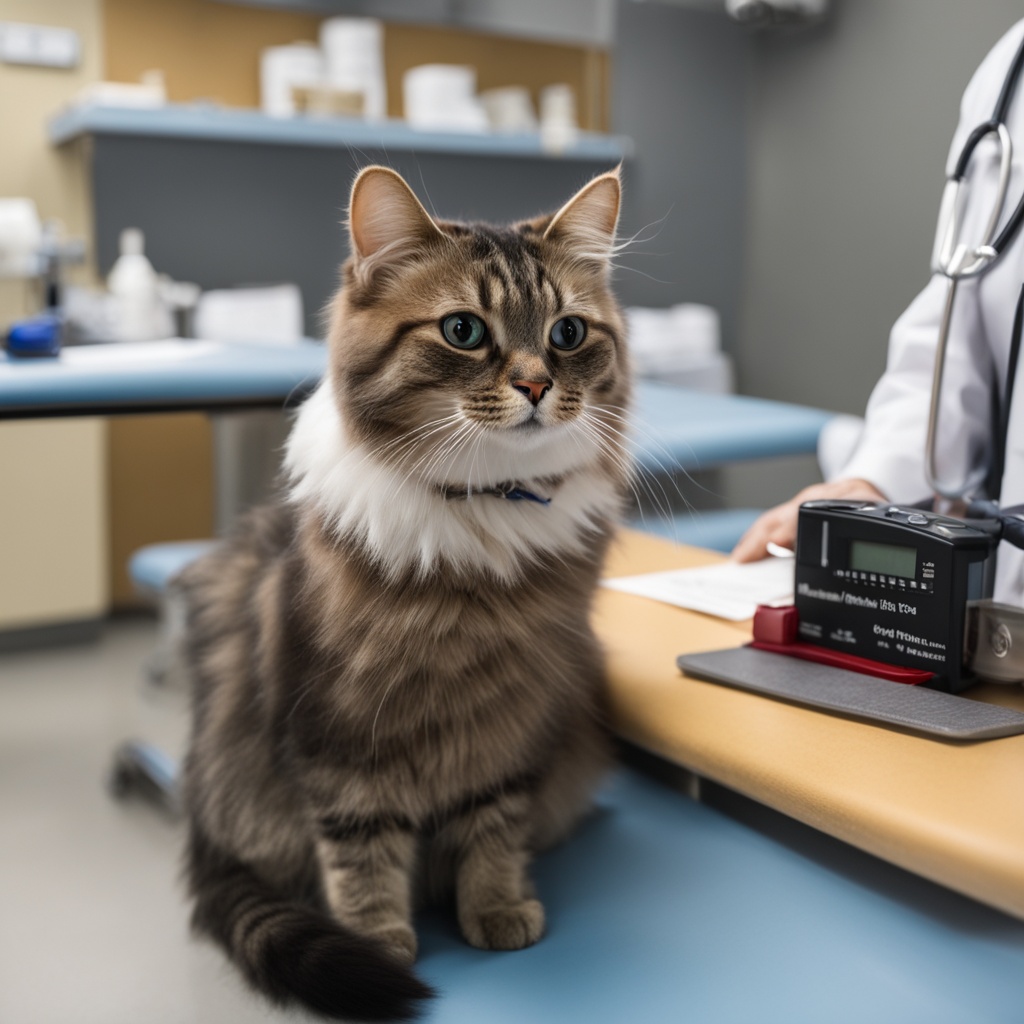Have you ever noticed your cute, little Munchkin cat struggling in the litter box? Their short legs and unique body can lead to trouble, especially with their urine. This issue is crucial but often missed when discussing Munchkin cat health. It’s important to know why they have these urinary problems. This knowledge is key to helping them.
The urinary system plays a vital role in your cat’s body. It consists of the kidneys, ureters, bladder, and urethra. It helps eliminate waste and keep your Munchkin cat healthy. But, problems here can lead to several health issues like UTIs, bladder and kidney infections, and FLUTD. If your cat shows signs of these issues like straining to pee, peeing more than usual, or bloody urine, you must act fast. These symptoms, if left untreated, can lead to more serious problems. To help prevent urinary issues, make sure your Munchkin has plenty of fresh water and eats quality food.
Key Takeaways
- Recognize common symptoms of urinary problems such as difficulty urinating and bloody urine.
- Understand the vital role of the urinary system in Munchkin cat health concerns.
- Consult a veterinarian promptly to manage urinary problems in Munchkin cats effectively.
- Adopt preventative measures like clean fresh water and quality food.
- Be aware that untreated urinary issues can lead to severe complications like kidney failure.
Understanding Munchkin Cat Urinary Issues

It’s very important to know about Munchkin cat urinary health. Munchkins, like other cats, show signs of urinary problems. Recognizing these signs early is key to their health.
Common Symptoms of Urinary Issues in Munchkin Cats
It’s vital to spot urinary problems in Munchkin cats early. Signs can include:
- Painful urination
- Incontinence
- Increased frequency or volume of urination
- Urination in unusual places
- Prolonged squatting in the litter box
- Strong odor to the urine
- Excessive licking of the genitals
Your cat might vomit, lose weight, or eat differently. Seeing these signs means you should see a vet soon.
The Anatomy of the Cat Urinary System
Knowing your cat’s urinary system helps with their health. It includes several important organs:
- Kidneys: They clean the blood and make urine to remove waste.
- Ureters: Tubes that carry urine from the kidneys to the bladder.
- Bladder: A sac that holds urine until it’s time to go.
- Urethra: A tube that takes urine out of the body.
This system also helps keep the body hydrated and controls blood pressure. It makes a hormone for making blood cells and helps in using vitamin D. Knowing these parts and their roles can help your Munchkin cat stay well.
Identifying Signs of Urinary Tract Infections (UTIs) in Munchkin Cats

Spotting the signs of Urinary Tract Infections (UTIs) in Munchkin cats is crucial for their health. These infections are often hidden but can be caught early with careful observation.
Behavioral Changes to Watch For
Watching your cat’s behavior is key. Pay attention to their litter box habits. If they start avoiding it or acting irritable, it could mean trouble. Also, notice if they’re grooming their genital area more than normal. This could be a sign of discomfort or pain from a UTI.
Medical Symptoms Indicating UTIs
Physical signs of UTIs are more direct. If your cat seems to be in pain when urinating, has bloody or cloudy pee, or a fever, these are big warnings. It’s crucial to get help from a vet right away. Ignoring these signs can lead to serious health problems, like kidney damage or blockages.
It’s important to stay watchful and act fast. Catching a UTI early means you can start treatment quickly. This keeps your cat healthy and happy.
- Avoiding the litter box
- Excessive grooming near the genitals
- Visible discomfort during urination
- Bloody or cloudy urine
- Fever
Best Remedies for Munchkin Cat Urinary Issues

Detecting and dealing with Munchkin cat urinary problems are crucial tasks. The most effective approach combines easy-to-get solutions with the vet’s advice. It leads to keeping your cat healthy over time.
Over-the-Counter Solutions
Simple urinary problems can be treated with OTC medicines. UroMAXX Urinary Tract, Kidney & Bladder Formula is one such product. It uses natural ingredients to calm irritation and cut infection risk.
Using these supplements regularly is important for the best results.
Veterinary Prescriptions and Treatments
Harder urinary issues demand a vet’s attention. They might prescribe drugs like antibiotics for infections. They may also suggest anti-inflammatories to lessen swelling and pain. Sometimes, physical blockages need surgery to fix them.
| Remedy | Description |
|---|---|
| Antibiotics | Kills bad bacteria for effective bacterial infection treatment. |
| Anti-inflammatories | Lessens swelling and pain, helping recovery happen faster. |
| Surgical Interventions | For bad blockages or stones, surgery helps urine flow normally again. |
| Dietary Adjustments | Special diets support urinary health, stopping problems before they start. |
Combining special diets and vet’s drugs for Munchkin cats is powerful. Regular vet visits help catch any issues early. Always discuss your options with your vet for the best care.
Prevention Tips: Keep Your Munchkin Cat’s Urinary Tract Healthy

Consistent hydration helps prevent urinary issues in Munchkin cats. Give them fresh water to drink. This encourages urination, which washes out toxins. Also, feed them high-quality, moist food. This diet helps balance their urinary pH. It also lowers the chance of forming stones.
Keeping your Munchkin cat stress-free is key. A peaceful home prevents stress-related urinary problems. Ensure they visit the vet regularly. This helps catch any urinary issues early. Tailor your care based on your cat’s special needs. This will lower the risk of urinary problems.
| Prevention Tips | Benefits |
|---|---|
| Fresh Water Access | Encourages hydration and toxin elimination |
| Moisture-Rich Diets | Maintains proper urinary pH |
| Regular Vet Check-Ups | Early detection and treatment of issues |
| Stress Management | Reduces risk of stress-induced urinary problems |
By using these tips, you can keep Munchkin cat urinary tract health robust. Your feline friend will be healthy and happy every day.
How to Address Munchkin Cat Urinary Issues?

It’s crucial to tackle Munchkin cat urinary issues quickly. Look out for symptoms like needing to pee a lot, seeing blood in the urine, or struggling to pee.
First, take your cat to the vet for a proper check-up. Your vet will figure out the issue and suggest the right treatment. This may involve changing their diet or taking specific meds.
When facing these issues, here’s what you can do:
- Increase Water Intake: Make sure your cat drinks a lot of water. This helps in cleaning the urinary system.
- Dietary Adjustments: Feed your cat special food for urinary health. This food can help keep the urine’s pH balance right.
- Stress Reduction: Stress can make urinary issues worse. Try to keep your cat’s environment calm and safe.
- Medical Interventions: Use any medicine or treatments the vet prescribes, like antibiotics or anti-inflammatory drugs.
Here’s a simple plan to address Munchkin cat urinary issues the right way:
| Step | Description | Importance |
|---|---|---|
| Symptom Recognition | Spotting symptoms early and acting fast | High |
| Veterinary Consultation | Getting a pro to diagnose the issue | Crucial |
| Dietary Changes | Switching to food that helps urinary health | Important |
| Hydration | Making sure your cat drinks enough every day | Vital |
| Reduce Stress | Creating a peaceful home for your cat | Helpful |
Keep an eye on your cat’s health and adjust their lifestyle as needed. This will help you handle and avoid more urinary trouble. Remember, taking action quickly and being well-informed are key in treating your Munchkin’s urinary problems.
Available Supplements for Cat Urinary Health

Keeping your cat’s urinary health in check is like a daily routine. It needs the right supplements for balance. Discover cranberry-based and herbal supplements that can make a difference.
Cranberry-Based Supplements
Cranberry-based options are popular in caring for your cat’s urinary system. Full of antioxidants and anti-inflammatory help, products such as Coco and Luna Urinary Tract use cranberry extract well. They improve urinary and immune health. The tangy taste of cranberries also keeps the tract free from infections.
Other Effective Herbal Supplements
For those who prefer herbs, there are plenty that help with urinary health. Look for supplements with Echinacea Purpurea for immune support and Wild Hydrangea for easing pain. These herbs help prevent infections and keep your cat’s urinary tract in top shape. Always check with your vet before adding anything new to make sure it’s safe with your cat’s other treatments.
Managing Urinary Problems in Munchkin Cats Through Diet

The food you give your Munchkin cat plays a big part in their urinary health. Choosing the right diet can prevent and manage urinary issues. This makes diet a powerful tool for Munchkin cat owners.
Foods to Avoid
Avoiding certain foods is key to urinary health. High-magnesium, high-phosphorus, and other mineral-rich foods should stay off the menu. Many commercial cat foods contain these, so always read the labels.
Nutritional Guides for Urinary Health
Prescription diets can be a big help. They keep urine pH balanced and prevent stones. Your vet may suggest certain brands. Also, wet cat food helps by adding more fluids.
Don’t forget about supplements like omega-3 and antioxidants. They can improve your cat’s urinary health. This comprehensive approach is good for overall well-being.
| Food Type | Recommendation | Benefit |
|---|---|---|
| Dry Food | Sparingly | Lower Hydration |
| Wet Food | Preferred | Increases Fluid Intake |
| Supplements | As Directed by Vet | Supports Urinary Health |
These diet tips help you support your Munchkin cat’s urinary health. Following them makes you a responsible and caring pet owner.
When to Seek Veterinary Help for Your Munchkin Cat

Having a Munchkin cat is full of joy, with their tiny legs and big personalities. Yet, they may face issues like trouble urinating. It’s key to watch out and know when to ask for veterinary help. Signs include difficulty in urinating, showing much pain, lethargy, and no appetite.
Obvious problems are blood in the urine and trying to urinate often but failing. Watch for serious changes in behavior as well. These signs demand you reach out for professional help. While you might try some home remedies, a vet’s checkup is crucial to stop severe issues, like kidney failure.
Getting help early and the right treatment are vital. Vets can guide you through diet changes and safe medications for your Munchkin. Though monitoring your cat at home is good, a vet’s advice is irreplaceable.
Check the table below. It offers a quick reference on when to seek a vet’s help. This will ensure you’re always clear on what to do in an emergency.
| Behavioral Indicators | Medical Symptoms | Actions to Take |
|---|---|---|
| Frequent but unsuccessful urination attempts | Blood in urine | Contact veterinarian immediately |
| Extreme discomfort or pain | Lethargy or loss of appetite | Schedule vet appointment |
| Noticeable behavioral changes | Strong smell of urine | Consult vet for appropriate remedies |
Conclusion
Dealing with urinary issues in your Munchkin cat needs a detailed plan. It’s vital to spot early signs. These include peeing often or with pain, seeing blood in their urine, or a sudden change in how they behave. Swift action is key once you notice any of these signs.
Consult your vet for a proper diagnosis and the best treatment. Quick attention can prevent things from getting worse. It also makes sure your cat stays happy and healthy.
Taking care of your Munchkin cat’s urinary health goes beyond just treating problems. Preventative steps are very important. Make sure they have plenty of fresh water and eat a high-quality diet. This diet should help their urinary system stay strong. Managing stress is also crucial.
Using the right supplements, like those with cranberries, can also help. Talk to your vet before adding anything new. They can guide you to what’s best for your cat. Seeing the vet regularly helps spot and tackle any issues early on. This is the foundation for keeping your cat in good health.
Ensuring your Munchkin cat’s well-being takes effort, but it’s rewarding. Simple changes in their diet, reducing stress, and keeping a close eye on them make a big difference. With timely care and smart preventive habits, dealing with urinary issues is manageable. This way, your cat can live a long, happy, and healthy life.
FAQ
What are common symptoms of urinary issues in Munchkin cats?
Munchkin cats with urinary issues might urinate a lot or have trouble doing so. They might pee outside their litter box. You could also see blood in their urine. Other symptoms include feeling tired, having a fever, and licking themselves a lot.
What does the anatomy of the cat urinary system include?
The cat’s urinary system consists of the kidneys, ureters, bladder, and urethra. They help remove waste, control water levels, regulate blood pressure, make erythropoietin, and process vitamin D.
How can I identify signs of UTIs in my Munchkin cat?
Watch for changes like not using the litter box or grooming too much. They might look uncomfortable when they pee, have bloody or cloudy urine, or a fever.
What are some over-the-counter solutions for urinary issues in Munchkin cats?
UroMAXX Urinary Tract, Kidney & Bladder Formula is a good supplement for urinary health. Always check with a vet before giving your cat any supplement.
What veterinary prescriptions and treatments might be necessary?
For serious urinary issues, your vet might suggest antibiotics, pain relief, or surgery. The treatment depends on the diagnosis.
How can I prevent urinary issues in my Munchkin cat?
Prevent problems by always offering fresh water and feeding high-quality, moist food. Also, try to keep your cat stress-free. Regular vet visits and quick action if you notice any urinary issues are important.
What steps should I take to address urinary issues in my Munchkin cat?
If you think your cat has urinary problems, look for symptoms and take them to the vet. The vet will suggest a treatment. This might include diet changes, more water, less stress, and sometimes medicine or surgery.
What supplements are available for supporting cat urinary health?
Cranberry-based supplements like Coco and Luna Urinary Tract can keep your cat’s bladder healthy. Other herbs like Echinacea Purpurea and Wild Hydrangea are in herbal supplements. But always ask your vet before giving your cat any supplement.
Which foods should be avoided to prevent urinary problems in Munchkin cats?
Avoid food with lots of magnesium, phosphorus, and other minerals that could lead to crystals. Instead, use special diets that vets recommend.
When should I seek veterinary help for my Munchkin cat’s urinary issues?
Get your cat to the vet right away if they can’t pee, seem very uncomfortable, or show signs like blood in their urine, trying to pee a lot but nothing coming out, or big changes in how they act.




